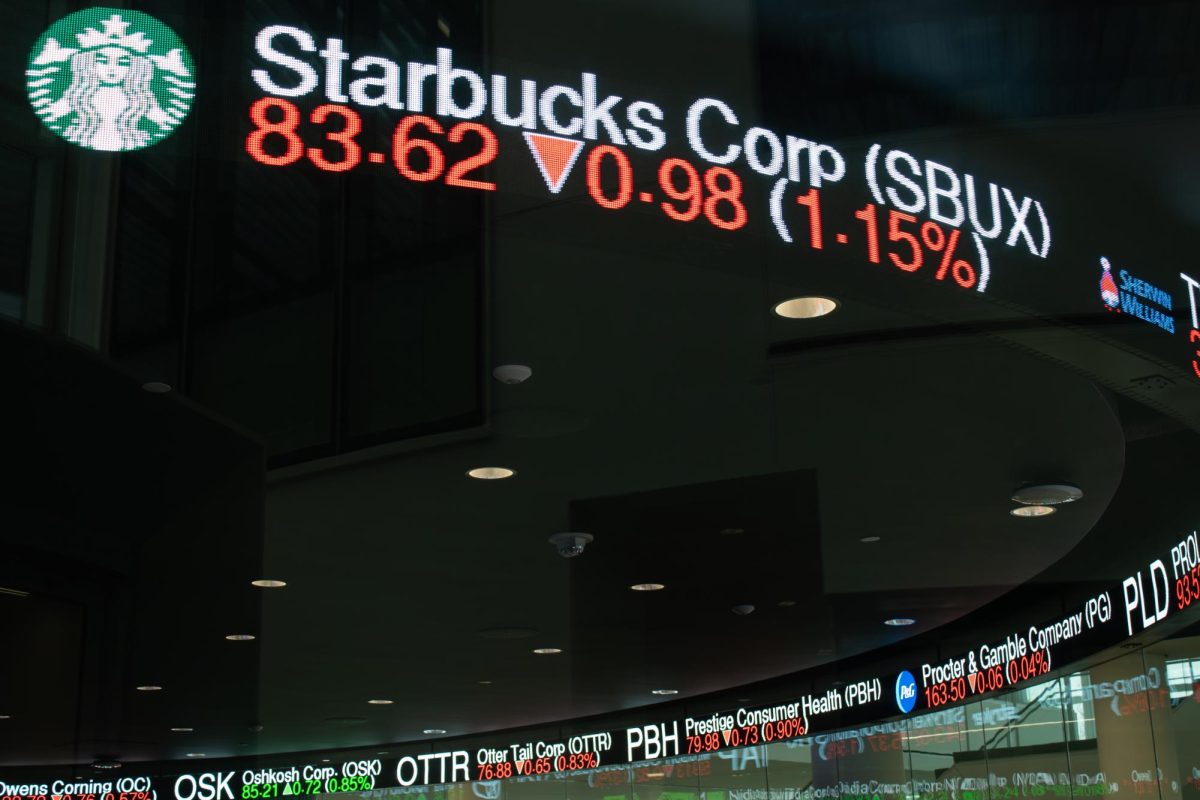As President Donald Trump continues rolling out his economic plan with a wave of tariffs on dozens of countries, economists across the country are fearing it could all backfire.
A tariff is a tax on imported goods and services that is paid by the importer. Trump believes raising these tariffs on foreign imports into the U.S. could revitalize the economy. However, Kent State economics professors Michael Ellis and C. Lockwood Reynolds presume the tariffs will have the opposite effect.
“Economists agree on very little and like to fight about things, but this is something that has united the economic discipline,” Reynolds said. “The tariff strategy being pursued doesn’t make sense, doesn’t have clear goals, creates too much uncertainty and is likely to cause a lot of hardship in the U.S. economy, if not globally.”
Trump has implemented the tariffs somewhat wildly, with delays and starts on certain tariffs causing chaos on global markets. This leads both Reynolds and Ellis to believe the tariffs are being used as a negotiating tactic rather than an economic policy.
“From an economic standpoint, tariffs are bad for the U.S., which leads me to believe that’s not really the motivation here,” Ellis said. “It could be related to trade policies, immigration policies or drug policies.”
Ellis also said Trump’s reasoning behind the tariffs is flawed, as the president claims tariffs will remove U.S. trade deficits and result in more equal trade. However, Ellis said these trade deficits result from U.S. private sector spending and foreign investors buying U.S. currency. This results in the dollar being strengthened relative to other global currencies, which is a positive for the U.S. economy.
“There’s a fundamental misunderstanding that trade surpluses are good and trade deficits are bad,” Ellis said. “The stronger the dollar gets, the cheaper it is for Americans to buy goods and services abroad. Conversely, the stronger the dollar gets, foreigners don’t want to [trade] as much with us, so these things drive the trade deficit.”
If the tariffs are used long term, they could lead to massive consequences for the U.S., such as other countries retaliating and raising trade barriers, higher manufacturing costs and the value of the dollar shrinking, according to Ellis and Reynolds. Everyday consumers have already seen their retirement accounts take a hit, and even more consequences could come from the tariffs, they said.
“Everything we buy is probably going to go up,” Reynolds said. “Expect companies to start not hiring and not making investments. That could lead to job losses.”
Imported goods that are expected to be hit the hardest by retaliatory tariffs are coffee, automobiles, electronics and furniture, according to Ellis and Reynolds. The professors also said we could start to see these price hikes happen at any time.
“If I woke up tomorrow and found out my coffee was 8% higher when I go to the store, it wouldn’t shock me,” Reynolds said. “It could happen that quickly, but certainly in the next couple weeks we’re going to see those price effects.”
If these price increases become too severe, consumer and business spending could drop, which could lead to a potential recession, Ellis and Reynolds said.
Due to the uncertainty of the tariffs, it’s hard to say what will happen and what won’t. If Trump plans to pause the tariffs for good or lighten the tariffs on certain countries, things may turn out much differently, Ellis and Reynolds said.
However, if these tariffs remain in place for a prolonged period of time, we could see the U.S. lose global economic influence.
“This may cause countries to shift their attention to try and develop trade relations with other countries,” Ellis said. “The world may move on without us.”
John Engoglia is a beat reporter. Contact him at [email protected].



